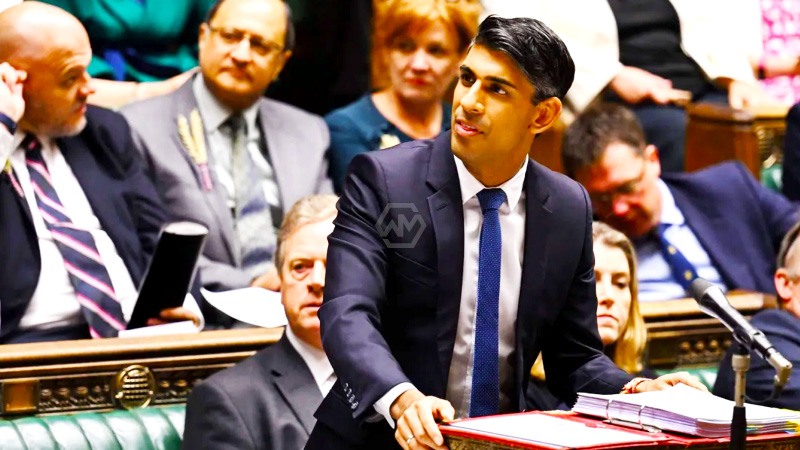- One of Sunak’s party colleagues sent him his first letter of no confidence.
- A statement of overall disapproval can be utilized to drive the head of the Moderate Party to leave.
- The Sunak government approved Cameron’s appointment in a significant cabinet reshuffle.
Deep splits within the Conservative Party have been exposed by the high-stakes cabinet reshuffle that has resulted in British Prime Minister Rishi Sunak receiving his first no-confidence letter from a member of his party.
Following a contentious cabinet reshuffle, British Prime Minister Rishi Sunak is facing his first letter of no confidence from a member of his party, underscoring the deep divisions within the Conservative Party.
A letter of no confidence
Just hours after Sunak’s shocking reorganization on Monday, Conservative MP Andrea Jenkyns sent a copy of her letter to Graham Brady, the chairman of the 1922 Committee, declaring, “Enough is enough.” “If having a party leader that the party members rejected wasn’t bad enough, the polls show that the public rejects him, and I wholeheartedly agree,” Jenkyns wrote. Rishi Sunak should leave now.”
A statement of overall disapproval can be utilized to drive the head of the Moderate Party to leave. A full no-confidence vote against the British prime minister and leader of the Conservative Party would need the submission of letters from 53 more MPs to proceed with a motion, which would be triggered by 15% of the 350-member party writing to the chair of the 1922 Committee.
Sunak was legally exempt from a vote of no confidence during the first year of his leadership as a Tory. But on October 24, he completed his 12-month tenure in the position, putting him in danger of facing a motion of no confidence.
David Cameron, the former prime minister, was named the new foreign secretary by Sunak in a significant Cabinet reorganization. The Sunak government approved Cameron’s appointment in a significant cabinet reshuffle even though he was not an elected member of the UK Parliament. The controversy started when the foreign secretary, who is of Indian descent, penned a “controversial” article. She is seen as a contentious figure who incited ire when she claimed that police were being overly accommodating to demonstrators who supported Palestine.



